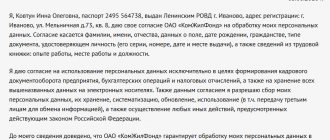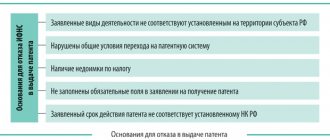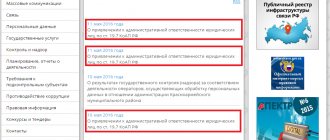Types of pre-trial proceedings
The pre-trial procedure for resolving disputes can be mandatory or voluntary. Mandatory procedure - these are cases in which the parties are legally obliged, before filing a claim in court, to resolve the dispute voluntarily through negotiations, making claims and receiving a response to them. When filing a claim in court, the results of the correspondence are attached to the documentation package. In cases where federal law does not provide for the obligation of pre-trial settlement, it may be specified in the contract.
Voluntary settlement is the filing of a claim at the initiative of one of the parties who wants to resolve the problem peacefully without going to court.
Pre-trial claims work is based on sending and drawing up claims using papers that confirm the existence of a problem. Also, this method of settlement includes conciliation procedures in the form of negotiations and appealing decisions to higher authorities.
Negotiations are conducted with the participation of an intermediary - a mediator. During them, the terms of reconciliation that will suit both parties are discussed. If a compromise is reached, an agreement is signed.
Mediation (conducting negotiations with the participation of a mediator) is relevant if a number of conditions are met:
- Opponents turn to a mediator voluntarily
- Confidentiality is maintained between mediators and parties.
- When negotiating and making decisions, both parties have equal rights.
- The mediator is completely impartial and does not relate to interested parties.
If it is not possible to reach an agreement through negotiations, and the parties understand this, a claim is immediately drawn up and sent. The answers to it are recorded in order to file a claim in the future.
Pre-trial conflict resolution. About the main advantages
Usually, in any situation, this solution to the problem is the most profitable option. Proceedings in court can take several months, or even several years.
The parties can not only come to a common agreement, but also help maintain partnerships. Our office employs lawyers who will do everything possible to resolve each individual issue. The complexity of the situation does not matter. And the costs at this moment are much less than when going to court or other government bodies.
First, a thorough analysis must be carried out, allowing not only to look at the current situation from the outside, but also to immediately identify possible solutions. At the same time, the conflict is also assessed from a legal point of view, which is sometimes especially important. After this, the pre-trial and judicial prospects for solving the problem are assessed.
Advantages of pre-trial settlement
Pre-trial dispute resolution has a number of advantages, for example:
- Prompt problem solving. If the opponent admits mistakes and meets halfway, the conflict can be resolved in a few weeks or even days. It often takes months for a claim to be resolved in court.
- You do not need to have legal knowledge to file a claim.
- With the peaceful resolution of conflicts, the costs of paying court fees and lawyer services are saved.
Of course, it is better to resolve controversial issues with the help of a qualified lawyer who will help you competently draw up a claim and advise on filing it and further appeal to the court or another agency if it is impossible to resolve the situation pre-trial.
Pre-trial conflict resolution. About the main advantages
Usually, in any situation, this solution to the problem is the most profitable option. Proceedings in court can take several months, or even several years.
The parties can not only come to a common agreement, but also help maintain partnerships. Our office employs lawyers who will do everything possible to resolve each individual issue. The complexity of the situation does not matter. And the costs at this moment are much less than when going to court or other government bodies. First, a thorough analysis must be carried out, allowing not only to look at the current situation from the outside, but also to immediately identify possible solutions. At the same time, the conflict is also assessed from a legal point of view, which is sometimes especially important. After this, the pre-trial and judicial prospects for solving the problem are assessed.
Methods for filing a claim
The peace settlement procedure is taking place in stages. First, the party whose rights have been violated sends a written claim to the counterparty. At the same time, they indicate the time frame within which the response must be received. The counterparty then reviews the claim.
There are several ways to file a claim. This:
- Personal delivery to the addressee. In this case, the paper is prepared in duplicate. One copy remains with the sender, the second goes to the recipient. The addressee must put a mark on the sender's copy indicating that the document has been received. The mark includes the incoming number, full name and position of the person who received the document, the date of acceptance, the signature and seal of the company. If the claim was received by an individual entrepreneur, the absence of a stamp is acceptable. If the recipient refuses to accept the claim, it is necessary to resend the document with the involvement of witnesses. If the application is refused again, the document is left with the organization. A note is made on it that the addressee refused to accept the paper. It is advisable to indicate the full name and position of the person and the full name of the witnesses. Witnesses must also sign the document.
- Mailing. The addressee is sent a registered letter with a notification and a list of attachments, which is drawn up in two copies. One is included in the letter, the second remains with the sender. You can track the delivery of your letter on the Russian Post website. Information from the site may later be used in court. Save the receipts and checks that you received when sending the documentation.
- Courier service. To send the paper, you need to know the position and full name of the recipient.
When submitting a claim, copies of documents that confirm the validity of the claims are also attached. These may be invoices, acts with penalties, penalties, medical certificates or bank statements. It depends on the nature of the claim.
There are two possible outcomes for filing a claim. In the first case, the counterparty may send a refusal. In the second case, further actions are agreed upon. Let's consider situations in which a document drawn up and presented is rejected. What to do in this case?
What are the ways to send a claim to a rights violator?
Most often, in pre-trial dispute resolution practice, it is the claim against the party violating contractual obligations that appears. A claim is a written appeal to a person who has made mistakes in their obligations, setting out a convincing request to eliminate violations of rights. A claim can be made in case of non-payment of funds, return of defective goods, non-payment of insurance premiums and much more.
The meaning of the claim is a voluntary, out-of-court resolution of the conflict. The complaint must briefly and accurately state all the circumstances and facts of violation of rights, put forward your demands and the deadlines for their implementation.
The claim is filed by the injured party, but a competent lawyer should help in correctly drafting the claim. RosCo specialists are always ready to come to your aid and will draw up a claim that will help you defend your own rights.
We invite you to read: What punishment does a driver face for hitting a pedestrian at a pedestrian crossing?
- The first is to personally deliver the document to the opponent, against signature, with the date of delivery recorded on the second copy, which remains with the applicant. Make sure that your copy contains not only the recipient’s signature, but also his position, surname and initials. In this case, the counterparty will definitely not deny the fact of delivery of the letter.
- The second is to send by mail. If you cannot submit your claim in person, you can use postal services. But the letter must be drawn up with a list of attachments with notification of receipt of the claim by the addressee.
In the first option, the period for consideration of the claim begins from the moment it is delivered, and in the second from the date the opponent receives a registered letter with the claim and the entire package of documents accompanying it.
PRE-TRIAL PROCEDURE FOR SETTLEMENT OF DISPUTES IN ARBITRATION PROCESS
Pre-trial dispute resolution
PRIVACY POLICY
1. GENERAL PROVISIONS
1.1. This Privacy Policy regarding the processing of personal data of users of the site https://mosaltair.ru (hereinafter referred to as the Privacy Policy) was developed and applied by the Limited Liability Company "Altair", Russia, Moscow region, Ramensky district, Ramenskoye, st. Trudovaya, building 10, building 4 letter B, room 407 (hereinafter referred to as the Operator) in accordance with paragraphs. 2 hours 1 tbsp. 18.1 of the Federal Law of July 27, 2006 No. 152-FZ “On Personal Data” (hereinafter referred to as the Law on Personal Data).
1.2. This Privacy Policy defines the Operator’s policy regarding the processing of personal data accepted for processing, the procedure and conditions for the processing of personal data of individuals who have transferred their personal data for processing to the Operator (hereinafter referred to as personal data subjects) with and without the use of automation tools, establishes procedures aimed at preventing violations of the legislation of the Russian Federation, eliminating the consequences of such violations related to the processing of personal data.
1.3. The privacy policy was developed to ensure the protection of the rights and freedoms of personal data subjects when processing their personal data, as well as to establish the responsibility of the Operator's officials who have access to the personal data of personal data subjects for failure to comply with the requirements and standards governing the processing of personal data.
1.4. Personal data of the Personal Data Subject is any information relating to a directly or indirectly identified or identifiable individual.
1.5. The Operator processes the following personal data of Users:
- Full Name;
- E-mail address;
- Phone number;
- other data necessary for the Operator when providing services to Users to ensure the functioning of the Site.
1.6. The Operator processes personal data of Personal Data Subjects for the following purposes:
- providing the opportunity for feedback from Operator Specialists on User requests;
- providing the possibility of online payment for services ordered on the Site;
- ensuring the fulfillment of the Operator’s obligations to Users;
- for market research purposes;
- informing the Personal Data Subject about promotions, competitions, special offers, new services, discounts, advertising materials and other services, as well as receiving commercial or advertising information and free products, participating in exhibitions or events, performing marketing research and notification of all special initiatives for clients;
- statistical purposes;
- for other purposes, if the corresponding actions of the Operator do not contradict the current legislation, the activities of the Operator, and the consent of the Personal Data Subject has been obtained for the said processing.
1.7. The operator processes personal data of personal data subjects by performing any action (operation) or set of actions (operations) performed using automation tools or without the use of such means, including the following:
- collection;
- record;
- systematization;
- accumulation;
- storage;
- clarification (update, change);
- extraction;
- usage;
- transmission (distribution, provision, access);
- depersonalization;
- blocking;
- deletion;
- destruction.
- PRINCIPLES FOR PROCESSING PERSONAL DATA
2.1. When processing personal data, the Operator is guided by the following principles:
- legality and justice;
- confidentiality;
- timeliness and reliability of obtaining the consent of the subject of personal data for the processing of personal data;
- processing only personal data that meets the purposes of their processing;
- compliance of the content and volume of processed personal data with the stated purposes of processing. The personal data processed should not be redundant in relation to the stated purposes of their processing;
- the inadmissibility of combining databases containing personal data, the processing of which is carried out for purposes incompatible with each other;
- storing personal data in a form that allows identifying the subject of personal data for no longer than required for the purposes of processing personal data;
- destruction or depersonalization of personal data to achieve the goals, their processing or in case of loss of the need to achieve these goals.
2.2. The processing of personal data by the Operator is carried out in compliance with the principles and rules provided for:
- Federal Law of July 27, 2006 No. 152-FZ “On Personal Data”;
- This Privacy Policy;
- Universal Declaration of Human Rights 1948;
- International Covenant on Civil and Political Rights 1966;
- European Convention for the Protection of Human Rights and Fundamental Freedoms, 1950;
- The provisions of the Convention of the Commonwealth of Independent States on Human Rights and Fundamental Freedoms (Minsk, 1995), ratified by the Russian Federation on August 11, 1998;
- The provisions of the Okinawa Charter for the Global Information Society, adopted on July 22, 2000;
- Decree of the Government of the Russian Federation dated November 1, 2012 No. 1119 “On approval of requirements for the protection of personal data during their processing in personal data information systems”;
- Order of the FSTEC of Russia dated February 18, 2013 No. 21 “On approval of the composition and content of organizational and technical measures to ensure the security of personal data when processed in personal data information systems”;
- Other regulatory and non-regulatory legal acts governing the processing of personal data.
- OBTAINING PERSONAL DATA.
3.1. Personal data of personal data subjects is obtained by the Operator:
by providing the subject with personal data when registering on the Site, when submitting applications, applications, questionnaires, forms, filling out registration forms on the Operator’s website or sending by e-mail, messages by telephone to the Operator’s support service;
by other means that do not contradict the legislation of the Russian Federation and the requirements of international legislation on the protection of personal data.
3.2. The Operator receives and begins processing the Subject’s personal data from the moment of receiving his consent.
3.3. Consent to the processing of personal data is given by the subject of personal data from the moment of starting to use the site, including by indicating about, through the performance of implied actions by the subject of personal data.
3.4. The subject of personal data may at any time withdraw his consent to the processing of personal data. To revoke consent to the processing of personal data, you must submit a corresponding application to the Operator via available means of communication. At the same time, the Operator must stop processing them or ensure the termination of such processing and, if the preservation of personal data is no longer required for the purposes of their processing, destroy personal data or ensure their destruction within a period not exceeding 30 (Thirty) days from the date of receipt of the specified review .
3.5. If the Personal Data Subject withdraws consent to the processing of personal data, the Operator has the right to continue processing personal data without the consent of the Personal Data Subject only if there are grounds specified in the Personal Data Law.
3.6. The subject of personal data has the right to choose what personal data will be provided to him. However, in case of incomplete provision of the necessary data, the Operator does not guarantee the subject’s ability to use all services and products of the Site, to use all services of the Site.
3.7. The personal data subject can view, update or delete any personal data included in his profile at any time. To do this, he can edit his profile online in his personal account or send an email to
- PROCESSING PROCEDURE FOR PERSONAL DATA
4.1. The operator takes technical, organizational and legal measures to ensure the protection of personal data from unauthorized or accidental access, destruction, modification, blocking, copying, distribution, as well as from other unlawful actions.
4.2. When processing personal data, the Operator applies legal, organizational and technical measures to ensure the security of personal data in accordance with Art. 19 of the Federal Law “On Personal Data”, Decree of the Government of the Russian Federation dated November 1, 2012 No. 1119 “On approval of requirements for the protection of personal data during their processing in personal data information systems”, Methodology for determining current threats to the security of personal data during their processing in personal information systems data approved by the FSTEC of the Russian Federation on February 14, 2008, Methodological recommendations for ensuring the security of personal data using crypto-means when processing them in personal data information systems using automation tools approved by the FSB of the Russian Federation on February 21, 2008 No. 149/54-144.
4.3. To authorize access to the Site, a Login and Password are used. The subject of personal data is responsible for the safety of this information. The subject of personal data does not have the right to transfer his own Login and Password to third parties, and is also obliged to take measures to ensure their confidentiality.
4.4. When transferring personal data, the Operator complies with the following requirements:
- does not disclose the personal data of the subject of personal data to a third party without expressed consent, except in cases where this is necessary for the purposes of processing personal data, preventing a threat to the life and health of the subject of personal data, as well as in cases established by law;
- does not disclose personal data for commercial purposes without the expressed consent of the subject of personal data;
- informs persons receiving personal data that this data can only be used for the purposes for which it was communicated, and requires these persons to take appropriate measures to protect personal data. Persons receiving the User’s personal data are required to maintain confidentiality;
- allows access to personal data only to authorized persons, and these persons must have the right to receive only those personal data that are necessary to perform specific functions.
4.5. The Operator has the right to disclose any information collected about the User of this Site if disclosure is necessary in connection with an investigation or complaint regarding unlawful use of the Site, or to identify (identify) a User who may violate or interfere with the rights of the Site Administration or the rights of other Site Users, as well as to comply with the provisions of current legislation or court decisions, ensure compliance with the terms of this Agreement, protect the rights or safety of other Users and any third parties.
4.6. Third parties independently determine the list of other persons (their employees) who have direct access to such personal data and (or) process it. The list of these persons, as well as the procedure for access and/or processing of personal data by them, is approved by the internal documents of the Third Party.
4.7. The operator does not sell or provide personal data to third parties for marketing purposes not provided for in this Privacy Policy, without the express consent of the personal data subjects. The operator may combine anonymized data with other information received from third parties and use it to improve and personalize services, content and advertising.
4.8. Processing of personal data is carried out on the territory of the Russian Federation; cross-border transfer of personal data is not carried out. The operator reserves the right to choose any channels for transmitting information about personal data, as well as the content of the transmitted information.
4.9. Personal information collected online is stored by the Operator and/or service providers in databases protected by physical and electronic controls, access control technology and other appropriate security measures.
4.10. The personal data subject understands, confirms and agrees that the technical processing and transmission of information on the Operator’s Website may involve the transfer of data over various networks, including unencrypted communication channels on the Internet, which is never completely confidential and secure.
4.11. The personal data subject also understands that any messages and/or information sent through the Operator’s Server may be unauthorized read and/or intercepted by third parties.
- FINAL PROVISIONS
5.1. In the event of any disputes or disagreements related to the implementation of these Rules, the Personal Data Subject and the Operator will make every effort to resolve them through negotiations between them. If disputes are not resolved through negotiations, disputes shall be resolved in the manner established by the current legislation of the Russian Federation.
5.2. This Privacy Policy comes into force for the Personal Data Subject from the moment he starts using the Operator’s Website and is valid for an indefinite period.
5.3. This Privacy Policy can be changed and/or supplemented by the Operator at any time during the validity period of the Rules at its discretion without the need to obtain the consent of the Personal Data Subject. All changes and/or additions are posted by the Operator in the appropriate section of the Site and come into force on the day of such posting. The subject of personal data undertakes to promptly and independently familiarize himself with all changes and/or additions. If the Personal Data Subject does not agree with the changes made, he is obliged to refuse access to the Site and stop using the materials and services of the Site.
How is pre-trial dispute resolution carried out?
First, negotiations are organized to reach a settlement agreement. If they prove unsuccessful, a claim procedure is applied. It provides:
- detailed analysis of information on the case;
- forecasting the prospects for resolving a dispute without going to court;
- developing a strategy for interaction with the party to the conflict;
- collecting evidence, preparing requirements, drawing up a claim, sending it to the addressee;
- monitoring the timing of receiving a response to a claim.
To conduct the process you will need to provide:
- agreement or other basis from which the dispute arose;
- payment documents confirming full or partial mutual settlement;
- defective acts, acts of acceptance and transfer, other information about the development of a conflict situation;
- business correspondence regarding the subject of the dispute;
- any other documents relevant to the case;
If, as part of the pre-trial procedure for resolving a dispute, a visit to regulatory organizations or law enforcement agencies is required, our specialists will take care of this. If the case goes to court, we will defend your interests to the end.
Pre-trial dispute resolution services may include:
- preparation of opinions on the essence of the dispute with references to laws and judicial practice;
- calculation of penalties for violation of obligations;
- preparation and sending of claim letters, calculations, reconciliation reports, additional agreements and other documents;
- support of negotiations and meetings between the parties to the conflict;
- filing complaints with state and municipal departments, the prosecutor's office and the tax inspectorate and other bodies.
When submitting a claim, you have up to 30 days to review it. A different period may be provided for by law or contract.







